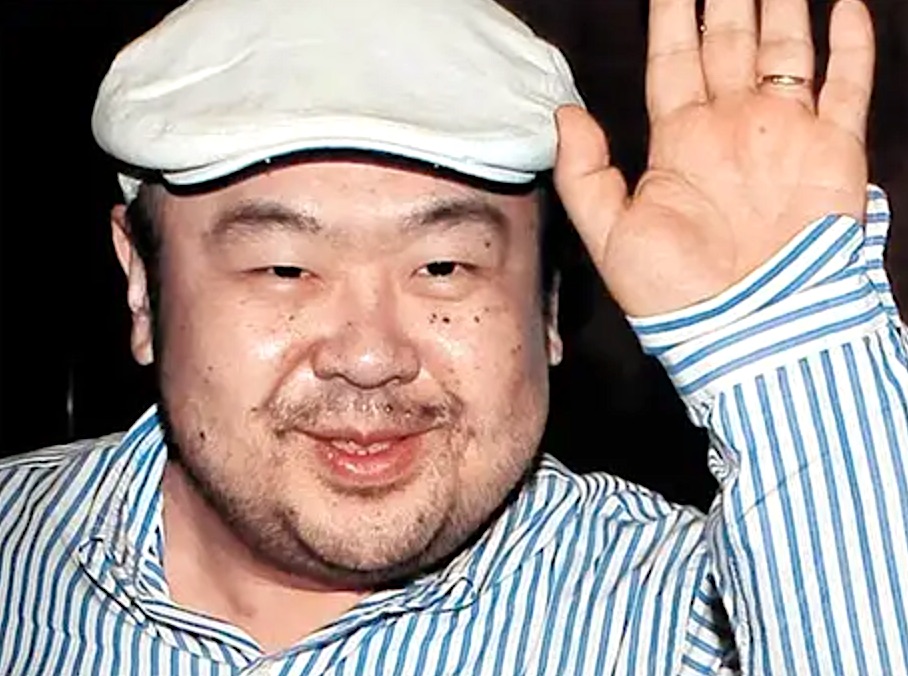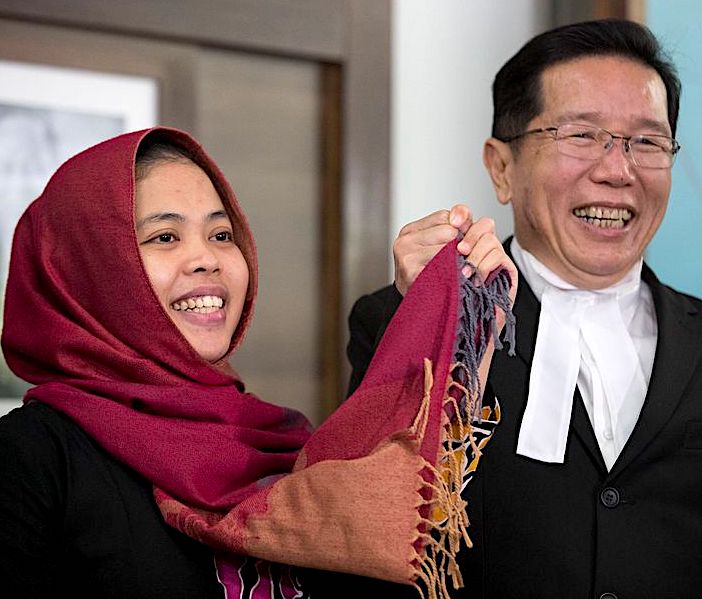The 2017 killing of Kim Jong-nam, older half-brother of North Korea’s leader Kim Jong-un, was a chilling expression of merciless Pyongyang realpolitik. Labyrinthine planning by a team of North Korean undercover agents went into the attack, carried out by a pair of seemingly unwitting women at Kuala Lumpur airport by smearing Jong-nam (pictured below) with VX nerve agent.
Ryan White’s documentary about Jong-nam’s death may contain material familiar to keen conspiracy fans, but it’s still an extraordinary story. White has buttressed his narrative with accounts from witnesses and lawyers, as well as penetrating contributions from Bloomberg journalist Hadi Amzi and Anna Fifield, former Beijing bureau chief of The Washington Post. Particularly striking is the use of CCTV footage of the killing, in which the actions of the characters involved are carefully highlighted as the startling event runs its course.
 At the core of the story are the dynastic struggles of the North Korean ruling elite, in which Kim Jong-un came to power in 2011 after overtaking Jong-nam, once considered the favoured candidate for Supreme Leader. However, schooling in Switzerland apparently gave him a taste for such decadent Western concerns as democracy and freedom of speech, and a bizarre attempt to visit Tokyo Disneyland on a forged passport under an assumed Chinese name seems to have convinced his father, Kim Jong-il, that Jong-nam probably wasn’t the man for the top job. In 2011 Jong-un got the gig, by which time Jong-nam already knew his card was marked, having survived an assassination attempt at Budapest airport in 2006. There would be another in 2012, prompting Jong-nam to write to his younger brother, pleading with him to “withdraw the order to punish me and my family. We have nowhere to hide. The only way to escape is to choose suicide.”
At the core of the story are the dynastic struggles of the North Korean ruling elite, in which Kim Jong-un came to power in 2011 after overtaking Jong-nam, once considered the favoured candidate for Supreme Leader. However, schooling in Switzerland apparently gave him a taste for such decadent Western concerns as democracy and freedom of speech, and a bizarre attempt to visit Tokyo Disneyland on a forged passport under an assumed Chinese name seems to have convinced his father, Kim Jong-il, that Jong-nam probably wasn’t the man for the top job. In 2011 Jong-un got the gig, by which time Jong-nam already knew his card was marked, having survived an assassination attempt at Budapest airport in 2006. There would be another in 2012, prompting Jong-nam to write to his younger brother, pleading with him to “withdraw the order to punish me and my family. We have nowhere to hide. The only way to escape is to choose suicide.”
This was chillingly prescient, though Jong-nam could hardly have foreseen the methods employed. As White’s film describes, the North Korean hit team selected the assailants for their sheer ordinariness and powerlessness, both of them having come from poor backgrounds, struggled to better themselves, and ended up as sex workers. Doan Thi Hong was from a village in rural Vietnam, before becoming an escort in Hanoi. Siti Aisyah was from a village in Indonesia, then worked in a sewing-machine sweatshop in Jakarta before moving on to providing personal services at hotels in Kuala Lumpur.
 The lure used by the plotters was the promise of turning the women into internet stars by recruiting them to participate in “prank TV” stunts popular on YouTube (though presumably not in repressive North Korea). Prior to the attack on Jong-nam, their new “friends” made them run through numerous practice runs on unsuspecting victims – individually, since they didn’t meet before the real attack – and rewarded them with wads of cash. The money was better than sex work, but they were just being exploited in a different way. When they made their move on Jong-nam, their handlers surreptitiously equipped them with the deadly VX mixture (pictured above, Aisya with defence lawyer Gooi Soon Seng after being freed).
The lure used by the plotters was the promise of turning the women into internet stars by recruiting them to participate in “prank TV” stunts popular on YouTube (though presumably not in repressive North Korea). Prior to the attack on Jong-nam, their new “friends” made them run through numerous practice runs on unsuspecting victims – individually, since they didn’t meet before the real attack – and rewarded them with wads of cash. The money was better than sex work, but they were just being exploited in a different way. When they made their move on Jong-nam, their handlers surreptitiously equipped them with the deadly VX mixture (pictured above, Aisya with defence lawyer Gooi Soon Seng after being freed).
The Malaysian authorities considered both women guilty of murder and proposed to hang them, but they were fortunate in having defence lawyers who fought their corner tooth and nail. Finally, though, it seemed that it was political pressure from the Indonesian and Vietnamese governments which got the murder charges dropped (though Doan served time for “causing harm”). The North Korean plotters had long since been spirited away to safety, while Kim Jong-un had successfully bolstered his grip on power and even enjoyed a love-in with Donald Trump. You couldn’t make it up, yet somebody did.
- Available at Dogwoof on Demand and other digital platforms
- More film reviews on theartsdesk













Add comment